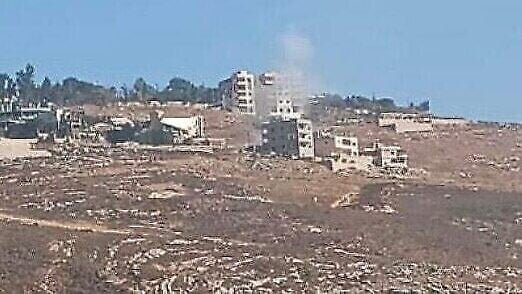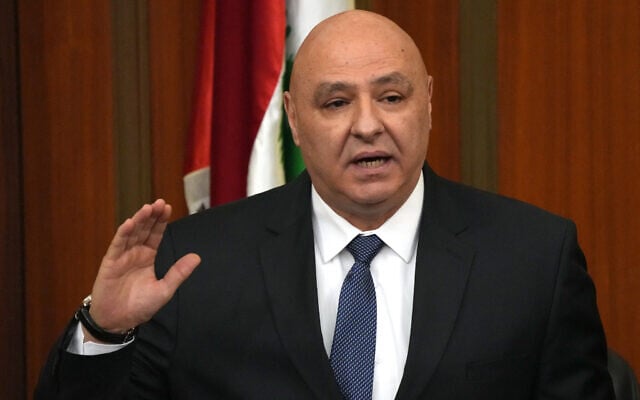



Lebanon’s health ministry said on Saturday that an “Israeli enemy strike” on a home in south Lebanon’s Wata al-Khiam killed one person.
The Israel Defense Forces did not immediately comment on the strike. Under the November 2024 ceasefire agreement with the Lebanese Iran-backed terror group Hezbollah, Israel is entitled to act against imminent threats in Lebanon.
The ceasefire, which ended over a year of hostilities, required Hezbollah to vacate southern Lebanon, and gave Israel 60 days to do so, to be replaced by the Lebanese military and international peacekeepers. Israel has since withdrawn from all but five points overlooking the border.
On Friday, Lebanese President Joseph Aoun said Israel’s continued presence in south Lebanon was preventing the Lebanese army from deploying. The president expressed interest in peaceful relations with Israel but said normalizing relations was off the table for now.
He also reaffirmed his government’s commitment to maintaining a monopoly on arms — a veiled threat against Hezbollah’s extensive arsenal.
The Lebanese state has been working methodically to dismantle Hezbollah’s infrastructure in the south of the country, and is estimated to have seized the majority of the terror group’s arms there.
Unprovoked, Hezbollah began firing near-daily rocket attacks at Israel on October 8, 2023 — a day after fellow Iran-backed group Hamas stormed southern Israel to kill some 1,200 people and take 251 hostages, sparking the war in Gaza.
The rocket fire displaced some 60,000 residents of northern Israel. In a bid to ensure their safe return, Israel stepped up operations in Lebanon in September, leading to two months of open warfare with Hezbollah in which the terror group’s leadership was decimated.

